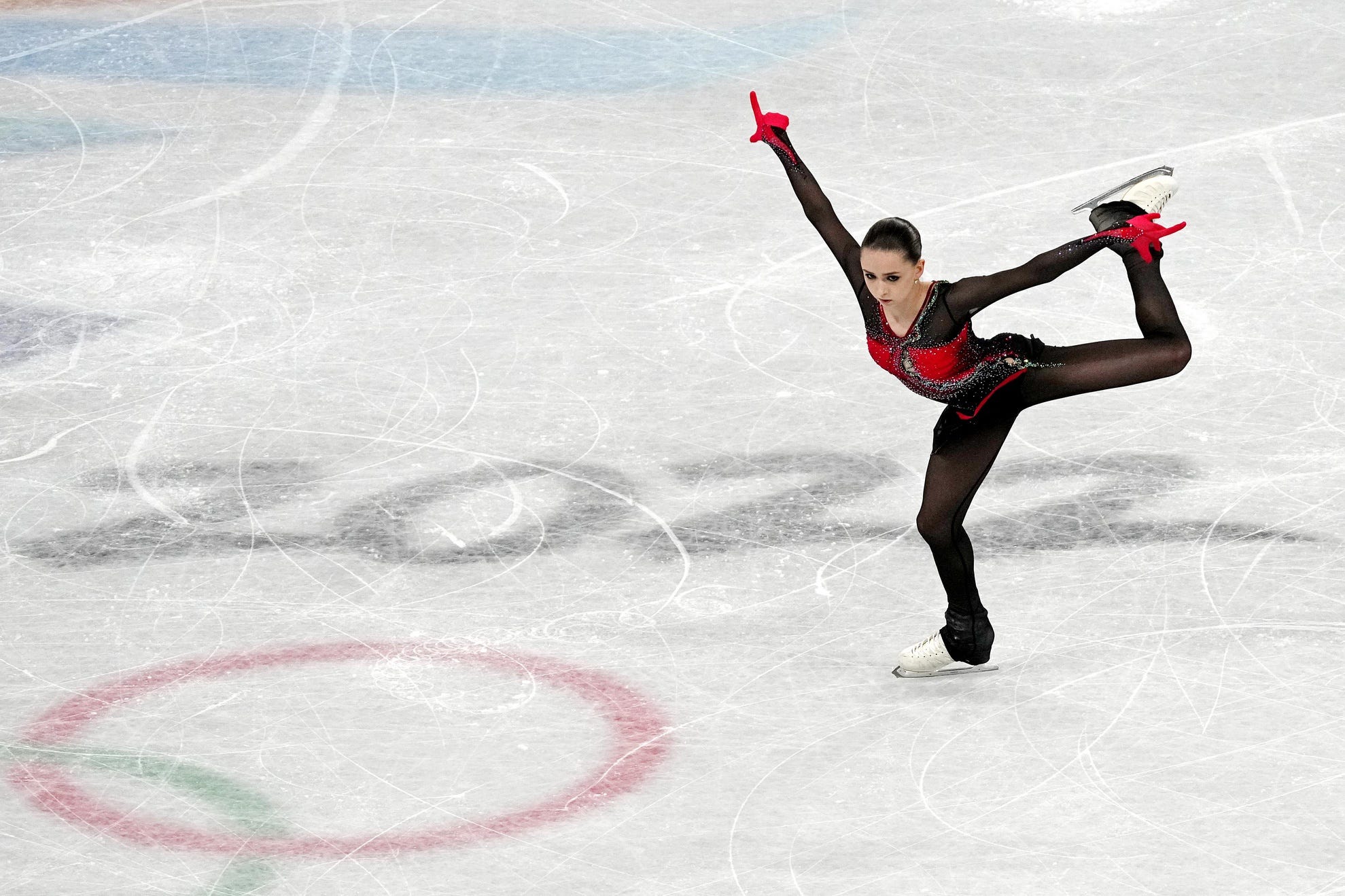
IOC responds to comparison of Sha’Carri Richardson and Kamila Valieva cases
American Sha’Carri Richardson, who had a failed drug test, went on Twitter and questioned why Russia’s Kamila Valieva’s case was handled differently from hers.
Sandy Hooper, USA TODAY
BEIJING — In a story full of shocking twists, this might be the one nobody saw coming.
With a disastrous performance in her long program Thursday night, Kamila Valieva – the 15-year-old Russian phenom at the center of an Olympic doping saga – dropped out of first place and all the way outside medal contention, finishing fourth.
It was an agonizing meltdown for a teenager who, for more than a week, has faced global media scrutiny.
Valieva made mistakes on her first four jumps before falling on an attempted quad toe loop moments later. She ended up finishing fifth in the long program portion of the event and fourth overall, with a total score of 224.09. For reference, her personal best is 272.71, which is also a world record.
Valieva’s collapse ultimately left her behind two of her compatriots and training mates, Anna Shcherbakova and Alexandra Trusova. They ended up taking gold and silver, respectively. Kaori Sakamoto of Japan won bronze.
Valieva choked back tears after the music to her program, “Bolero” by Maurice Ravel, stopped playing. She then sat stunned in the kiss-and-cry as her score was announced, remaining there for several minutes.
‘THAT POOR KID’: Figure skaters, social media react to Kamila Valieva finishing fourth
BAD JUDGING: Kamila Valieva should have been third after her short program, former Olympic judge says
It was a mind-boggling finale to a weeklong saga that had cast a pall over the Olympic figure skating competition.
News broke late last week that Valieva had tested positive for a banned heart medication, then been provisionally suspended by the Russian Anti-Doping Agency, then been reinstated by a RUSADA disciplinary committee upon appeal.
With the prospect of Valieva being allowed to compete in one of the most high-profile events of the Winter Olympics, a trio of international sports bodies – the International Olympic Committee, World Anti-Doping Agency and International Skating Union – all filed appeals to the Court of Arbitration to Sport, asking a panel of arbitrators to reimpose the suspension.
Instead, CAS ruled in her favor.
FOLLOW THE CHASE FOR GOLD: Never miss a moment with our Olympic newsletter
TEXT WITH US AT BEIJING OLYMPICS: Subscribe to texts, where we’ll be your official guide to the Games
While many of the specifics of Valieva’s case remain unknown, and she has not been penalized in any way, the IOC nevertheless decided to intervene. It announced this week that it would not hold a medal ceremony or award presentation after Thursday’s competition if Valieva finished inside the top three, insisting that any results would be “preliminary” until her doping case was settled.
Valieva’s performance Thursday rendered that announcement unnecessary.
It was a shocking performance, given Valieva’s brilliance.
Even before her 16th birthday, she had established herself as the world’s best female skater, winning the 2020 junior world championships, 2021 Russian championships and 2022 European championships. She’s smashed world records for short, long and overall program scores. And she became the first woman to reach overall scores of 250, 260 and 270 points – putting her in a class all her own.
Valieva’s career forever changed on Dec. 25, when she gave a urine sample that would later test positive for trimetazidine, a heart medication that has been banned by WADA since 2014 because it can improve endurance and blood flow.
Because a WADA-approved lab did not report the findings of the positive test until midway through the Olympics, the Russian teen skated in the team event in Beijing earlier this month, helping Russia win gold. She was informed of the test the next day.
According to a document filed by WADA, Valieva’s lawyers have claimed she must have ingested trimetazidine accidentally by way of medication that her grandfather takes. She was granted the opportunity to compete in the individual event, in part, because she is 15 – making her a “protected person” under WADA code.
WADA has said it plans to investigate Valieva’s entourage, which would presumably include her coach, Eteri Tutberidze. Tutberidze also coaches Shcherbakova and Trusova.
Contact Tom Schad at tschad@usatoday.com or on Twitter @Tom_Schad.
from USA News – usanewsplug https://ift.tt/10cxWjt
via IFTTT
